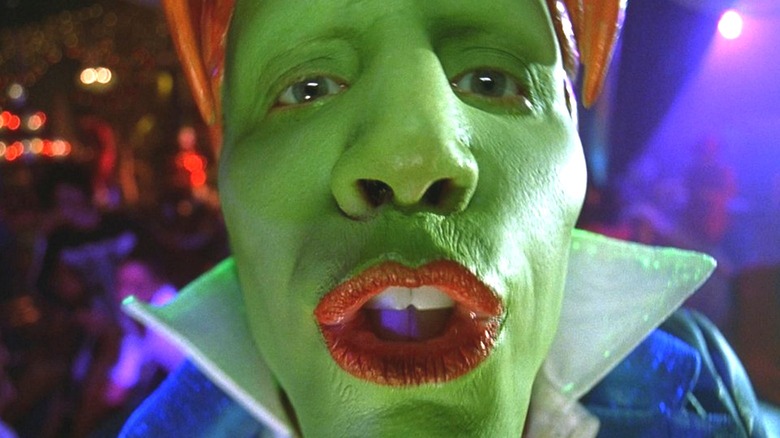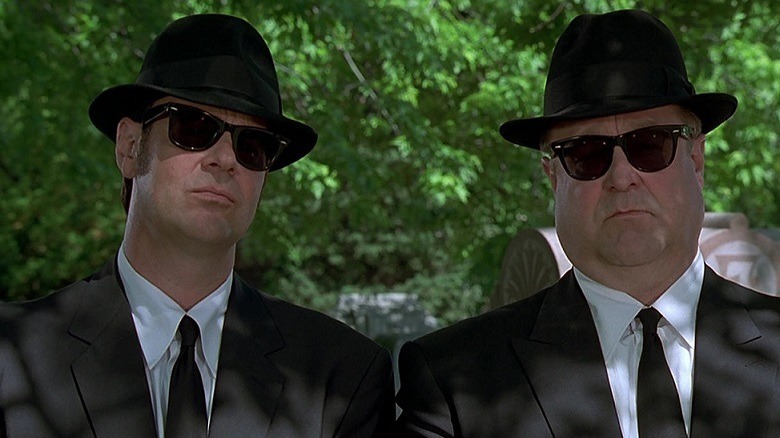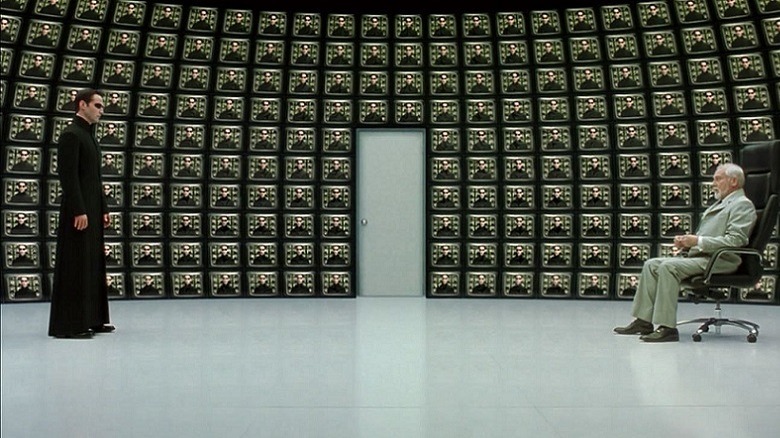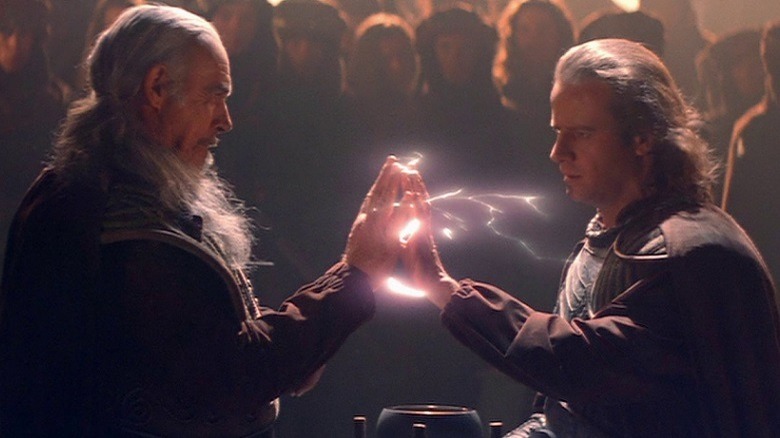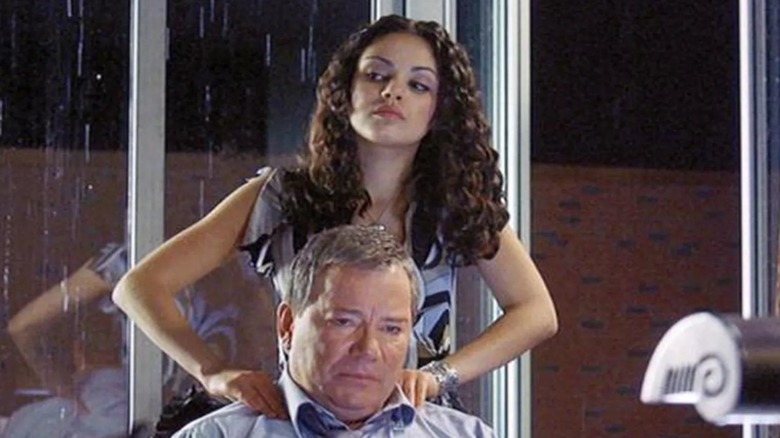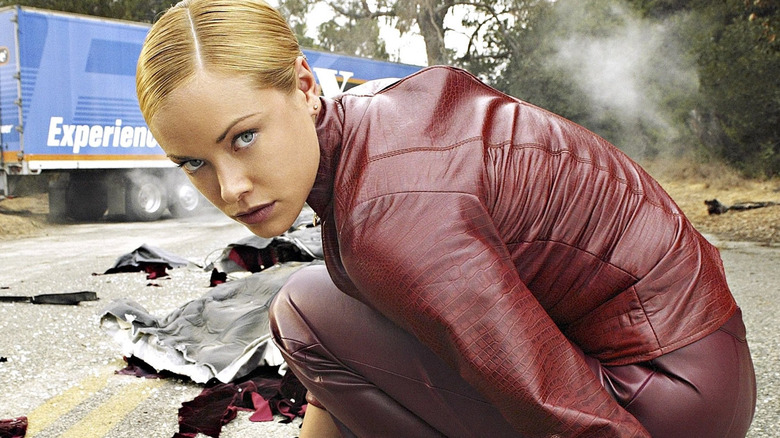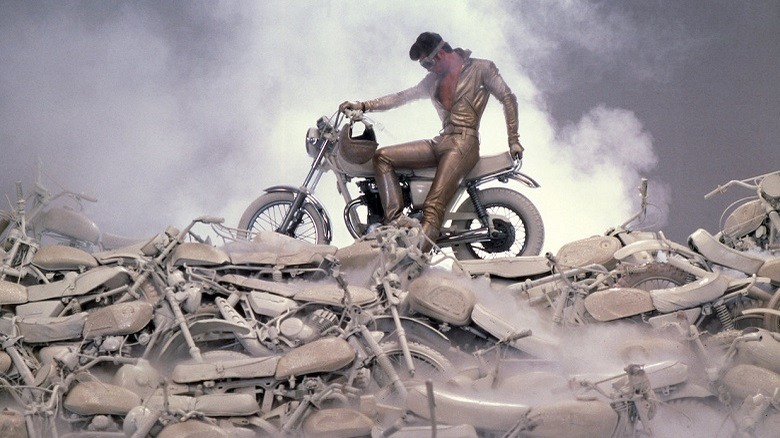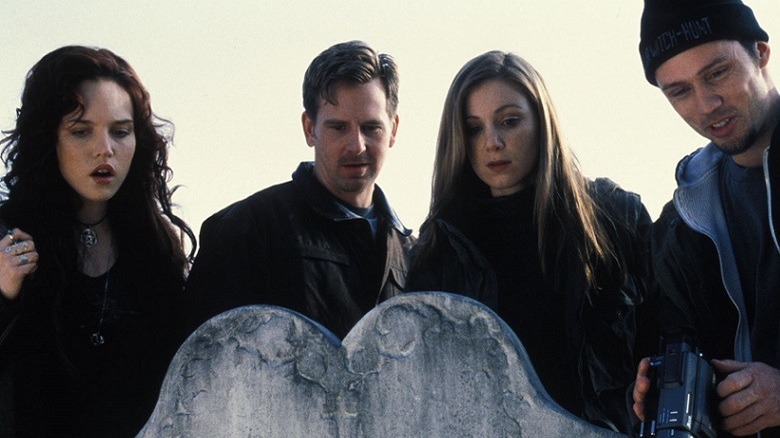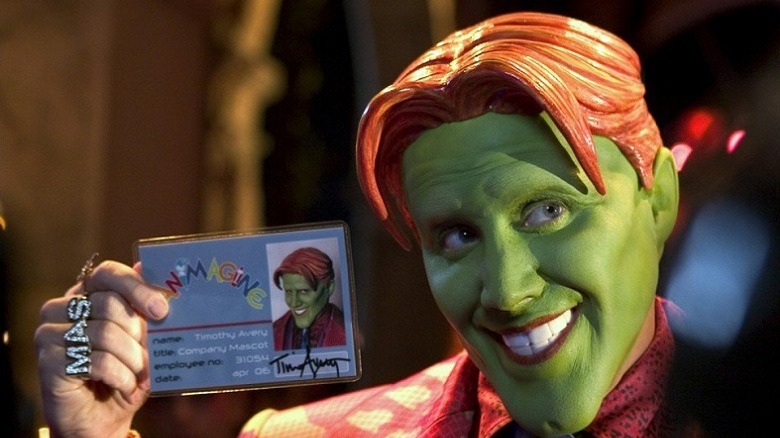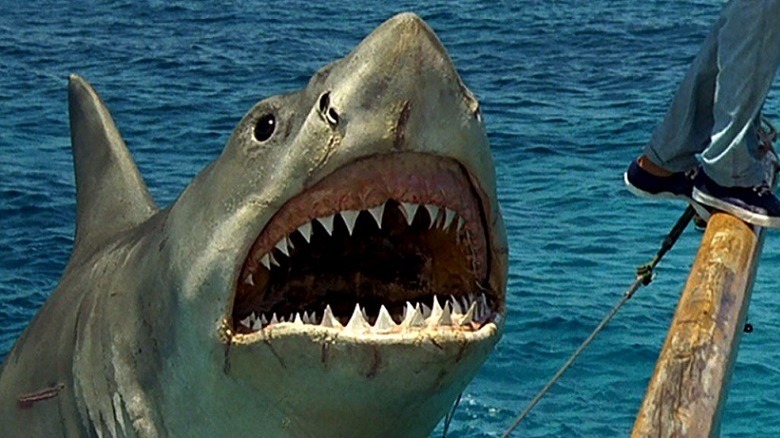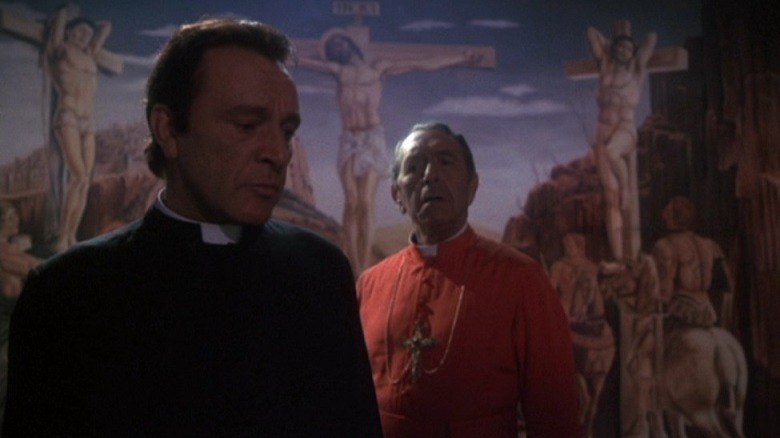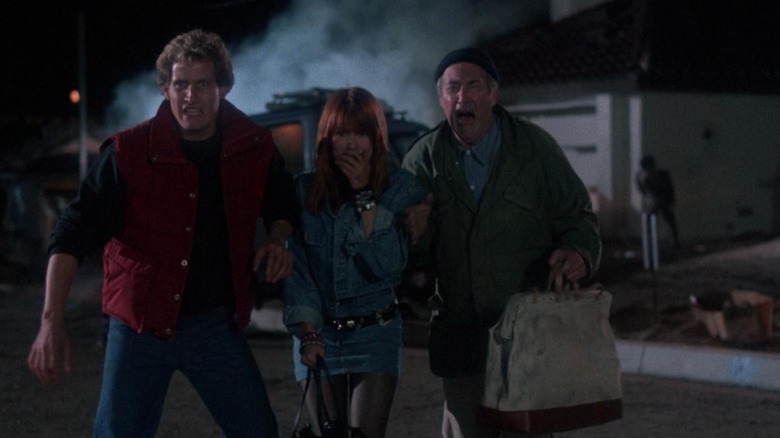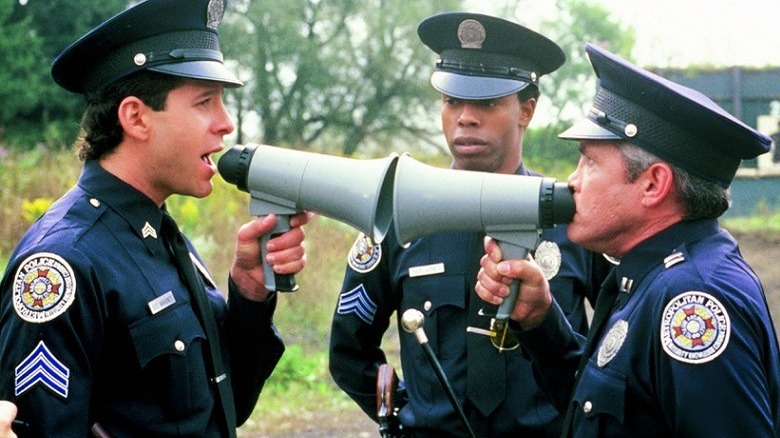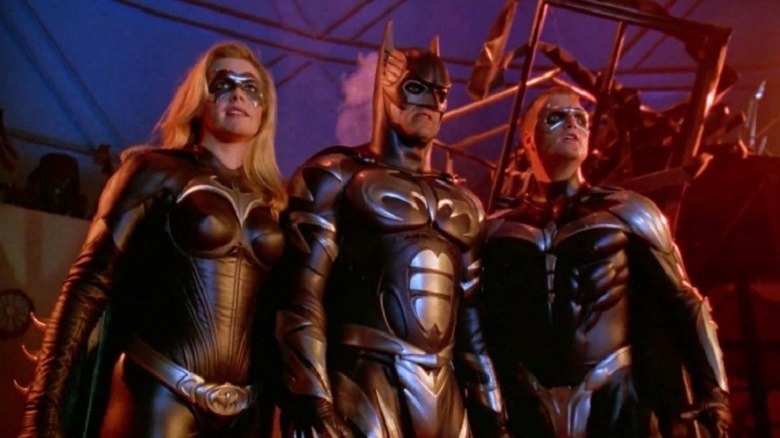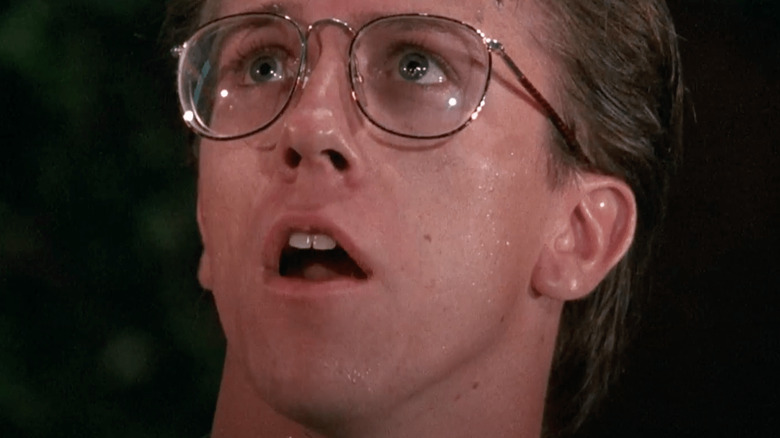14 Sequels That Truly Didn't Need To Happen
As Benjamin Franklin might have said, if he had witnessed the rise and continued growth of modern cinema, "Nothing is certain but death and taxes. And that most movies, if they make a reasonable profit, will get sequels whether they need one or not."
Anachronistic Ben Franklin has it spot on. Hefty profits can magically transform the most standalone and self-contained movies into a trilogy, tetralogy, or worse. We have proof. Some of the films on this list are completely unnecessary — they were clearly made to satisfy shareholders, not because a cinema audience was clamoring for them. Some are here because, frankly, they're so bad that they shouldn't exist at all, sequel or not.
And there's certainly no shortage of potential candidates for this list. In fact, in many cases, the films listed here are where things started going wrong, kicking off a string of even more unnecessary sequels and completely depleting the audiences' goodwill. So, with the bare minimum of ado, here are 14 sequels that simply didn't need to happen.
Blues Brothers 2000
If you're ever in the vicinity of Massachusetts, visit Abel Hill Cemetery in Chilmark. If it's quiet there and it's a windless day, just stand still and take it in. Cup your ear and listen carefully. Do you hear it? The noise that sounds like an engine revving? That's the sound of John Belushi's corpse spinning in its grave, with plenty of momentum to spare even two decades after the release of "Blues Brothers 2000."
Freshly released from prison, Elwood Blues has to reunite with his old band members to raise enough funds for Sister Mary Stigmata. On the way, they'll be pursued by the police, a white supremacist group, the Russian mafia, and more. Sound familiar?
Only slightly redeemed by its soundtrack, "Blues Brothers 2000" is a beat for beat copy of the original, albeit one so pale as to be virtually transparent. John Goodman does his best, but even he can't compete against the one element single-handedly guaranteed to ruin any movie (except for, maybe, "Indiana Jones and the Temple of Doom"): a wisecracking kid sidekick. The only single thing that "Blues Brothers 2000" does better than the original is crash more cars — a piece of trivia extremely appropriate for this car crash of a movie.
The Matrix: Reloaded
I have nothing against "The Matrix" sequels, per se — they're fun, entertaining movies with memorable set pieces — and will even admit to having my interest piqued by "The Matrix: Resurrections." My issue is how unnecessary they are.
Take the end of "The Matrix." Neo is in possession of all of the cheat codes. He has the ability to see the Matrix for what it is — a now decipherable construct of code — and the ability to manipulate it at will. He defeats Agent Smith with ease, promises the machines that their end is nigh, and flies away. Cue Rage Against the Machine and the end credits. Neo was the One, and is now effectively a god. He can crack the Matrix wide open. Victory can be safely assumed.
So why do we need both "Reloaded" and "Revolutions?" I have no doubt that the Wachowskis made "The Matrix" with an eye towards a trilogy, but no one could have predicted how popular the first movie would become. "The Matrix" is a perfectly formed standalone film, self-contained because that's the only way a studio would make it, with unnecessary sequels thrust upon it thanks to the original's runaway success. Neo may be the One, but Hollywood wouldn't let this movie follow suit.
Highlander II: The Quickening
Some movie mysteries are best left just that. "Groundhog Day" would have been a duller experience had they explained why Bill Murray was trapped in a time loop. The Xenomorph has become defanged by Ridley Scott's repeated attempts to explain its background. And nobody — nobody — was crying out for an origin story for the immortals in "Highlander."
The 1986 movie was a fun, throwaway action film with an excellent soundtrack and a neat bit of self-contained mythology. At the point of death, people find that they are immortal. If an immortal decapitates another one, he gets his powers. Cue Christopher Lambert and Clancy Brown scrapping on a rooftop, a fair amount of neon, and clanging swords.
And then, in "Highlander II: The Quickening," returning director Russell Mulcahy throws unnecessary backstory into a convoluted mess of a plot only an immortal has time to understand. Now, the "Highlander" heroes and villains don't just live forever — they're also from outer space. Michael Ironside improves any movie he's in by at least 60%, but even he can't save this.
American Psycho 2: All-American Girl
The original "American Psycho" is a smart, wry satire of the '80's lifestyle, and a look at how everything, including human life itself, is devalued and commoditized to the wealthy. The Mila Kunis-starring sequel, "American Psycho 2: All American Girl," is 88 minutes you will never get back. It will make you long for the cold, blessed relief of death.
The story — an ambitious criminology student is willing to kill for continued success — wasn't even written as a sequel to "American Psycho," and only had its tenuous links to the original added after the first movie's success. Even Kunis, who has subsequently proven herself much better than this shoddy material, thought it a different project until it was edited and released. Patrick Bateman only appears in the film's introduction, as a poor body double filmed from behind. Even the appearance of William Shatner, who seems to be thoroughly enjoying himself, can't redeem it.
Terminator 3: Rise of the Machines
Ever wish that he wouldn't be back? Just once?
Sadly, like Skynet, the Terminator franchise has proven to be a behemoth that can never truly be wiped out. For all its hype, "Terminator 2" never felt like a cheap cash-in exercise. It was a more than worthy sequel to the 1985 original, neatly continuing and concluding the tale of Sarah Connor versus the machines. "Terminator 3," however, feels like a cynical excuse to prolong a story that had effectively already ended.
With Edward Furlong wisely not returning to reprise the role, "Terminator 3" sees John Connor and his girlfriend pursued by yet another unstoppable Skynet agent. It's another chase movie with none of the style or intelligence of its two predecessors, with only a vaguely novel and interesting ending stopping it from being yet another generic action movie.
It's worth noting that "Terminator: Salvation" could have easily occupied this spot, being a film that had people emerging from the cinema asking, "What does Skynet actually want?" The list of Terminator movies proves that, as long as Skynet still has access to time travel technology, studios will keep this franchise going forever.
Grease 2
There was an interesting fan theory circling around the time of the 40th anniversary of "Grease" that Sandy (Olivia Newton-John) was dying the whole movie — she drowned on that summer night with Danny ("She swam by me, she got a cramp"), and the whole film is a coma hallucination. When Greased Lightning (automatic, systematic, and hydromatic, incidentally) ascends to the heavens with Sandy riding shotgun, it's doing just that, Sandy's spirit having passed on.
I'm inclined to believe that theistic take on the classic movie, because "Grease 2" is some kind of hell, or at least an awfully specific flavor of purgatory. It's a dreadful limbo realm where actors in their mid-20s and early 30s pretend to be teenagers singing awful, unmemorable songs while wearing '80s hair and fashions, even though they're pretending it's the '50s. It's a retread of the first film but with even fewer stakes, and none of the charm. This is not the one that I want, ooh, ooh, ooh, honey.
Book of Shadows: Blair Witch 2
Eschewing everything that made the first film memorable — namely the (then) novel use of the found-footage format, and the nebulous but interesting backstory — "Book of Shadows" was released a year after "The Blair Witch Project," clearly rushed to theaters in order to exploit the hype that the original movie was still generating.
"Blair Witch 2" is not a terrible film. Sadly, is it not a great one, either. It feels like the original premise was completely squandered in this meandering, formulaic effort, and that's a genuine shame.
Admittedly, following the phenomenal success of "The Blair Witch Project" would have made it difficult for any sequel to live up to the hype. Still, it's like nobody even tried. If not for the "Blair Witch" moniker in the title, you'd be forgiven for mistaking this for one of a million identical horror films — specifically, one that randomly cannibalizes elements from a handful of better movies.
Son of the Mask
1994's "The Mask" was an above-average comic book adaptation elevated to excellence by both Cameron Diaz's big debut and Jim Carrey's over-the-top performance, which conjured up memories of Michael Keaton's excellent portrayal of Beetlejuice. But where the original felt like a live-action Tex Avery cartoon, with Jim Carrey leaving no piece of scenery unchewed, "Son of the Mask" is a lackluster movie that replaces coherent plot and characterization with endless CGI.
It's not clear who the intended audience for "Son of the Mask" is. It's not clever or deep enough to hold the attention of the average adult, and it's too vulgar and confusing for kids. Alan Cummings and Bob Hoskins? You're better than this, lads. "The Son of the Mask" is the cinematic equivalent of a fever dream — you'll be glad when it's finally all over, and will wonder if you imagined at least half of it. Sadly, you did not.
Jaws: The Revenge
Michael Caine explains his participation in "Jaws: The Revenge" like this: "I have never seen it, but by all accounts, it is terrible. However, I have seen the house that it built, and it is terrific!"
As you wander those corridors and admire the architecture, Michael, do you ever think about this film? Do you ever contemplate whether a shark is capable of the mental capacity needed to seek revenge for another dead shark? As you gaze out on those perfectly sculpted gardens, Michael, did you ever wonder how the shark managed to swim the 1,250 miles from Amity Island to the Bahamas in less than three days? As you sit in one of those tastefully decorated rooms, reflecting on your success, do you ever wonder whether a shark can actually roar? Especially when it's underwater? Did you never think to question why, when you clambered out of the sea, your shirt was bone dry?
Hope it was worth it, Michael.
Exorcist 2: The Heretic
When the 1990 Leslie Nielsen comedy "Repossessed" is both a better movie and a more serious sequel to "The Exorcist," then something, somewhere, has gone terribly, terribly wrong.
Here, Richard Burton (who must have wondered what possessed him to take the role) stars as Father Lamont, an experienced priest who, having learned that the demon Pazuzu had possessed another child before Regan MacNeil, travels to Africa to find the truth. The writer and director of the original movie — William Peter Blatty and William Friedkin, respectively — are absent and sorely missed, but a man of John Boorman's stature ("Deliverance," "Excalibur") should have been a more than adequate replacement. "Exorcist 2" also has a stellar cast, and a soundtrack by Ennio Morricone.
So, where did it all go bad? "Exorcist 2" barely feels like a sequel to "The Exorcist" at all — at times, it's so dull and incomprehensible that it doesn't even feel like it belongs in the same genre. The power of Christ compels you to avoid this turkey at all costs ("Exorcist 3: Legion", however, more than makes up for this accursed nonsense).
Return of the Living Dead II
The original "Return of the Living Dead" is a classic, and one of the best horror movies of the '80s. It also ends with the military launching a nuclear strike on Louisville, site of the zombie outbreak. That's a tragedy on multiple levels — first, in that the survivors perished in the resulting nuclear conflagration, and second in that it didn't destroy any chances of a sequel.
Attempting to re-bottle lightning, the filmmakers behind "Return of the Living Dead II" recruited several members of the original cast and, despite changing the setting from a funeral home to a small town, basically repeat the story from the first film. Original writer-director Dan O'Bannon made the career-saving move of staying clear, however.
The first movie was a perfect blend of horror and comedy. The sequel is a considerably weaker affair on both counts. Series-favorite Tarman turns up simply because he's Tarman, and it all feels a little clumsy and rushed. The chemistry between the cast is why the original movie stood out. Here, it's sadly lacking.
Police Academy 4: Citizens on Patrol
After 1986's "Police Academy 3: Back in Training," the entire writing team behind the franchise was replaced by a Commodore 64 running a random plot generator. That's entirely speculative, of course, but it's the only way that I can logically account for "Police Academy 4: Citizens on Patrol" and its three sequels. The fourth instalment in the saga of bumbling police officers isn't the worst that the franchise has to offer, but it's clearly where the rot started.
For example, the Commodore 64 decided that this film would have the police commander create a plan to make everyday citizens work alongside police officers. Naturally, our hapless bunch of rejects are picked for the scheme. Hilarity ostensibly ensues, although honestly, nothing here is particularly funny. Even Steve Guttenberg bailed after this instalment, and he went on to star in a movie called "Lavalantula," for goodness' sake.
Batman & Robin
The greatest villain in Batman's extensive rogues' gallery isn't the Penguin, the Riddler, or the Clown Prince of Crime. That esteemed and singular honor goes to director Joel Schumacher who, over the course of two films, killed a thriving franchise stone dead. Just as both Tim Burton and the comics were trying to move towards a grittier, more Gothic, and less campy Batman, Schumacher was busy buying all of the neon he could lay his hands on.
It would be a decade before it dawned on Hollywood that adding more villains to a film makes it worse (case study: "Spiderman 3"), so "Batman and Robin" sees our Caped Crusaders (and Batgirl) confront Mister Freeze, Poison Ivy, and Bane. Caffeine-obsessive George Clooney dons the cowl, breaking the mold by being mediocre at portraying both Bruce Wayne and Batman. Add in the fact that Schwarzenegger's Mister Freeze single-handedly attempts to shoehorn every single possible pun about snow and ice in the movie that he possibly can, and watching "Batman and Robin" becomes less of a superhero thriller, and more of an endurance test.
Troll 2
Not including "Troll 2" here would be akin to excluding "Pet Sounds" from a list of the best albums of all time. Putting it here is almost a reflex. However, I propose that "Troll 2" has dropped so far through the bottom of this list that it has somehow re-emerged gleaming at the top. When humanity is finally gone from the Earth, future travelers to this gleaming blue pearl may come across a copy of "Troll 2," and it will be considered as one of mankind's greatest achievements, up there with mastering flight, domesticating fire, and the invention of the spork.
They'll wonder how, with a budget of twenty-three dollars and two buttons, a cast of people who I'll generously refer to as actors, and a script seemingly written by throwing lines around a room, a work of such dazzling majesty was created. A film that's so bad that it's so good — and that comes around full circle to bad again. "Troll 2" is the film that "Plan 9 from Outer Space" wants to be.
